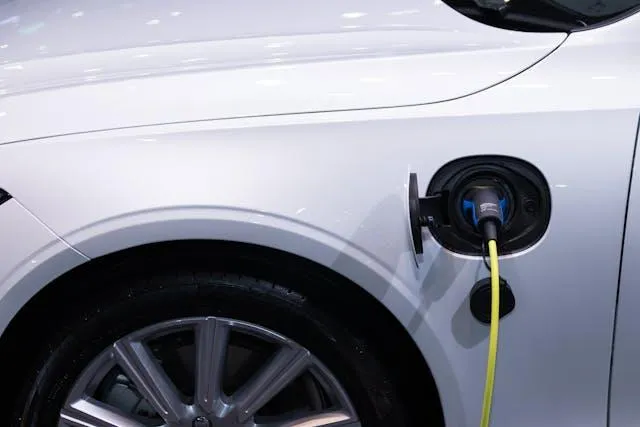
Electric vs Gas Cars: What to Expect in Servicing Costs
Electric vehicles (EVs) are becoming increasingly common on Mississauga roads. With rising fuel costs and government incentives, many drivers are considering switching from gas-powered cars to electric ones. But one big question remains: how do servicing and maintenance costs compare between electric and gas vehicles?
Understanding the difference in upkeep can help drivers decide which vehicle is right for them. In this article, we’ll break down the key differences in servicing costs, what to expect long-term, and which option might fit your lifestyle and budget better.
How Electric and Gas Cars Differ in Maintenance Needs
Electric cars and gas-powered cars have different mechanical systems, which affect what needs to be maintained.
Electric Vehicles
No oil changes required
Fewer moving parts, meaning fewer wear-and-tear repairs
Battery health is the biggest long-term expense
Tires and brakes still require regular maintenance
Software updates may be part of service routines
Gas Vehicles
Require regular oil changes and filter replacements
More moving parts, leading to greater wear and tear
Timing belts, spark plugs, and exhaust systems need routine attention
Higher risk of transmission and fuel system repairs
Generally cheaper to repair in the short term compared to EV batteries
While EVs reduce routine maintenance, they may bring larger costs in the long run if the battery or electrical components fail.
Key Factors That Affect Servicing Costs
When comparing EVs and gas-powered vehicles, here are the main areas that influence costs over time.
Routine Maintenance
Gas vehicles require more frequent, smaller services such as oil changes and tune-ups. EVs eliminate many of these, lowering recurring costs.
Brake Wear
EVs often use regenerative braking, which reduces wear on brake pads. Gas vehicles rely solely on mechanical brakes, leading to more frequent replacements.
Battery and Fuel Costs
EV owners save significantly on fuel, but battery replacement can cost thousands if it becomes necessary outside warranty coverage. Gas vehicles don’t have this issue but will incur continuous fuel expenses.
Specialized Repairs
EVs may require specialized diagnostic tools and technicians, which can make repairs more expensive or harder to find. Gas-powered vehicles are widely understood by mechanics and parts are often cheaper.
Insurance and Warranty Coverage
Insurance rates and warranty terms vary. Many EVs come with extended battery warranties, but out-of-warranty repairs can be costly. Gas cars typically have shorter warranty coverage, but repairs are generally less expensive.
How to Decide Between Electric and Gas Cars
If you’re weighing your options, here’s a simple decision guide:
Step 1: Consider Your Driving Habits
If you drive mostly in the city, EVs may save money with fewer maintenance needs and cheaper “fuel.”
If you travel long distances often, gas cars may still be more convenient with faster refueling and lower upfront costs.
Step 2: Review Long-Term Costs
EVs cost more upfront but save on routine maintenance and fuel.
Gas cars cost less upfront but require ongoing maintenance and higher fuel spending.
Step 3: Think About Local Support
In Mississauga, gas vehicle service is widely available, while EV repair options are growing but still more limited.
Consider whether your trusted local shop has the expertise for EV diagnostics and service.
Frequently Asked Questions
Are electric cars really cheaper to maintain?
Yes, EVs generally cost less to maintain because they don’t need oil changes, spark plugs, or exhaust repairs. However, battery replacement is costly if it becomes necessary.
How often do electric cars need servicing?
Most EVs need routine inspections every 12 months or so. Common checks include brakes, tires, and battery health.
Do electric cars need brake replacements?
Yes, but less often than gas cars. Regenerative braking slows the car while charging the battery, which reduces wear on brake pads.
What is the most expensive repair for electric cars?
Battery replacement is the most costly repair, sometimes ranging in the thousands of dollars if it isn’t covered by warranty.
Are mechanics in Mississauga able to service electric cars?
Yes, but fewer shops specialize in EV repairs compared to gas cars. More repair shops, including general auto service centers, are expanding their EV capabilities as adoption grows.
Conclusion
When it comes to servicing costs, electric cars usually win in routine maintenance, saving money on oil changes, spark plugs, and brake wear. Gas cars, however, remain less expensive for most short-term repairs and have broader repair support. The biggest difference comes from the EV battery—while most last many years, replacement can be a significant expense.
For Mississauga drivers, the choice between electric and gas vehicles comes down to driving habits, budget, and local service availability. Whether you drive electric or gas, regular maintenance from a trusted repair shop will keep your vehicle safe and reliable for years to come.